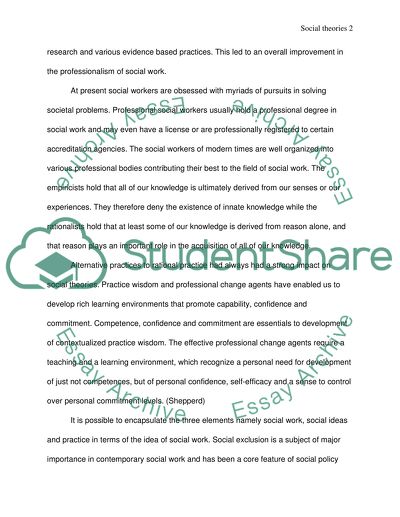Cite this document
(“Social theories in social work Essay Example | Topics and Well Written Essays - 3000 words”, n.d.)
Retrieved from https://studentshare.org/social-science/1547013-social-thoeries-in-social-work
Retrieved from https://studentshare.org/social-science/1547013-social-thoeries-in-social-work
(Social Theories in Social Work Essay Example | Topics and Well Written Essays - 3000 Words)
https://studentshare.org/social-science/1547013-social-thoeries-in-social-work.
https://studentshare.org/social-science/1547013-social-thoeries-in-social-work.
“Social Theories in Social Work Essay Example | Topics and Well Written Essays - 3000 Words”, n.d. https://studentshare.org/social-science/1547013-social-thoeries-in-social-work.


